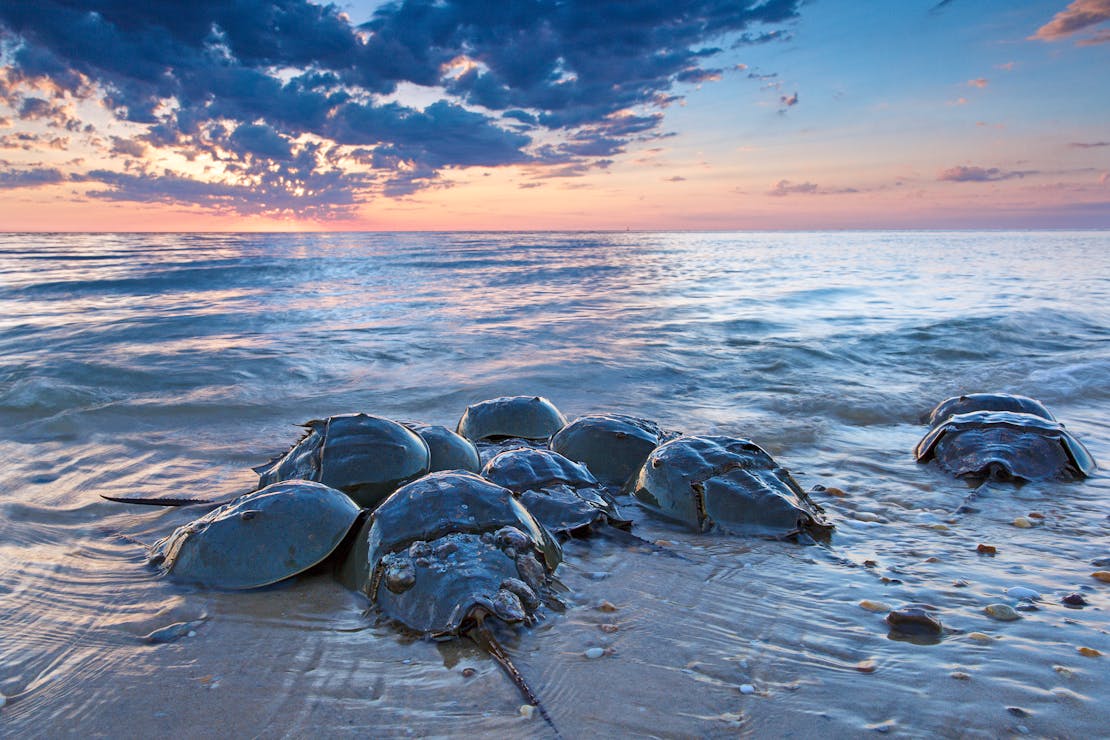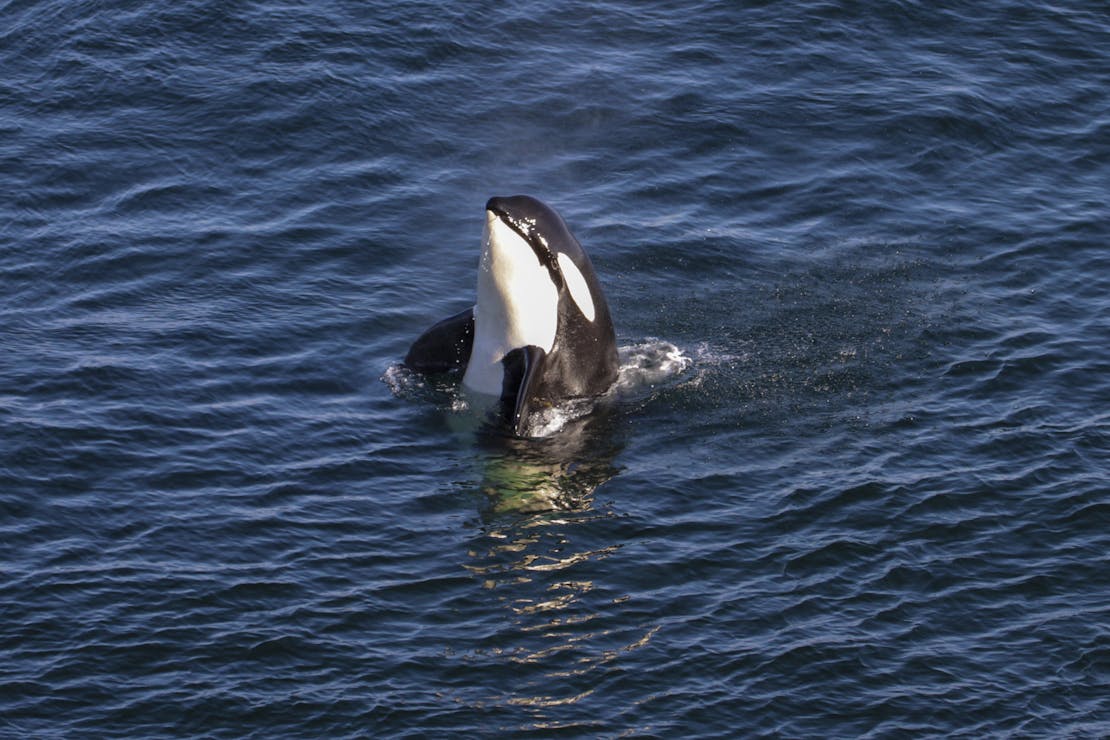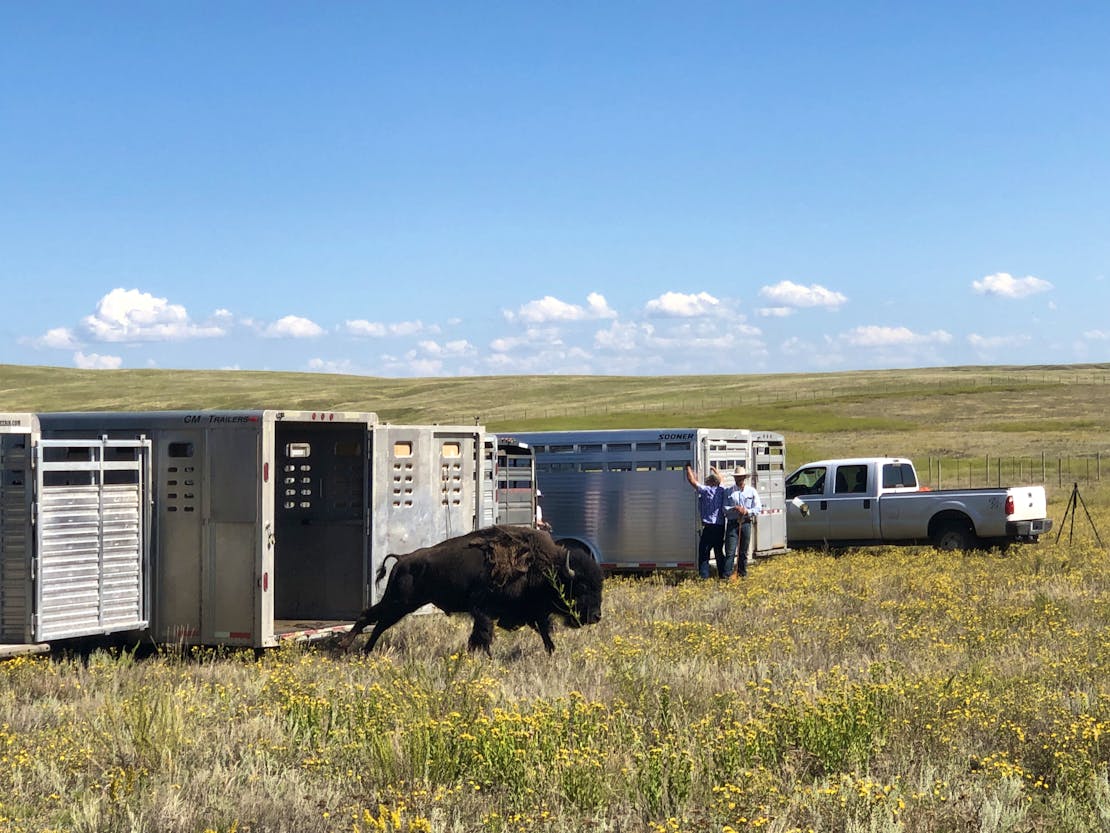Despite the challenges 2021 brought us—the second year of a global pandemic, a deadlocked Congress, an insurrection and a new administration—Defenders of Wildlife has made great strides to protect wildlife and their habitat.
This year, we filed 54 lawsuits to safeguard imperiled species; welcomed 300 activists into our newly launched biodiversity ambassadors network; and garnered supporters from around the country to advocate for change, including 40,000 who urged the U.S. Fish and Wildlife Service to protect manatees and their habitat, and 65,000 who asked the U.S. Department of the Interior to relist wolves under the Endangered Species Act.
Before the hard work continues in 2022, we’d like to look back on some of the progress made for wildlife in 2021. Here are 10 actions from 2021 that give us hope for the new year:
1. Halting the Blood Harvest of Horseshoe Crabs in Cape Romain
In May, a federal judge blocked Charles River Laboratories from harvesting horseshoe crabs for their blood from Cape Roman National Wildlife Refuge until a lawsuit seeking to require the practice be conducted sustainably has been decided. “Today’s ruling, which concluded that Cape Romain wildlife would be irreparably harmed by the harvest, brings much-needed relief for the refuge and the many species that depend on a healthy horseshoe crab population,” said Lindsay Dubin, staff attorney at Defenders of Wildlife. Learn more.
2. Ending Border Wall Construction
In June, the Biden administration announced plans to halt border wall construction along the Southwest border of the U.S. The plan, which is being carried out by the Department of Homeland Security and the Department of Defense, fulfills President Biden’s promise to end the diversion of funds for the border wall, and outlines steps the administration will take to address life, safety and environmental concerns. Learn more.
3. Expanding Critical Habitat for Endangered Southern Resident Orca
In August, the National Oceanic and Atmospheric Administration (NOAA) finalized a rule that expands southern resident orca critical habitat by approximately 16,000 square miles or 640%. The new habitat spans the coasts of Washington, Oregon and California, from the Canadian border down to Point Sur. Learn more.
4. Restoring Protections for Alaska’s Bristol Bay
In September, the Biden administration announced that it plans to restore protections for Alaska’s Bristol Bay. The Environmental Protection Agency filed a motion in the U.S. District Court for Alaska to reverse a Trump-era decision that had stripped environmental protections for the bay. With the filing, EPA responded to a 2019 lawsuit from Defenders of Wildlife and 11 other groups for the agency’s failure to protect Alaska fisheries, wildlife, jobs, communities and ways of life from Pebble Mine. Learn more.
5. Reversing Harmful Endangered Species Act Limitations
In October, the Biden administration announced it is reversing two harmful Trump administration rules that undermine the Endangered Species Act (ESA), the bedrock law that protects our nation’s wildlife from extinction. “These rules were blatantly reckless and anti-wildlife,” said Jamie Rappaport Clark, Former president and CEO of Defenders of Wildlife. “Amid a biodiversity and climate crisis, it’s frustrating that so much time has to be spent undoing the former administration’s damage. But this was time well spent, and we thank the Biden administration for these important actions.” Learn more.
6. Launching Wildlife Nation with Jeff Corwin
This year, Defenders of Wildlife and Litton Entertainment launched Wildlife Nation with Jeff Corwin, a new tv show airing every Saturday morning on ABC stations nationwide. Premiering on October 2, 2021, the new weekly series features conservationist Jeff Corwin and Defenders of Wildlife in action, highlighting the remarkable wildlife of North America and the inspiring partners working together to save them from the brink of extinction. More than 1.3 million people tuned in to Wildlife Nation each week. Learn more.
7. Restoring Migratory Bird Protections
In a critical win for wildlife, the Biden administration announced in September it would be reversing a Trump administration rule that gutted protections for more than 1,000 species of migratory birds. In addition, the administration outlined its plans to develop a program that would protect migratory birds from incidental take while providing regulatory certainty for industry. “We need the full protections of the MBTA at this crucial moment in time when so many bird populations are in peril. It’s a great day for bird lovers everywhere!” said Jamie Rappaport Clark, Former president and CEO of Defenders of Wildlife. Learn more.
8. Withdrawing Flawed Red Wolf Proposed Rule
Thanks to a lawsuit filed in early 2021 in part by Defenders of Wildlife, the U.S. Fish and Wildlife Service announced in November they would withdraw a 2018 proposed rule that would have shrunk the North Carolina-based Red Wolf recovery area (NC NEP) by 90 percent, severely hampering recovery efforts. The Red Wolf, which is the world’s most endangered canid, has only eight individuals in the wild, located solely on the Albemarle Peninsula in North Carolina. Adding to the good news, the FWS also announced they will release nine captive Red Wolves into the NC NEP this winter, tripling the number of breeding pairs. Learn more.
9. Increasing Funds for Wildlife Habitat and Climate Resiliency
In November, President Biden signed the $1.2 trillion Infrastructure Investment and Jobs Act into law. The law will make significant investments in wildlife habitat and green infrastructure over the next decade. It is one of the largest infrastructure investments in the nation’s history. Learn more.
10. Transferring 56 Bison to Tribal Lands
In December, Fort Peck Tribes, the InterTribal Buffalo Council and Defenders of Wildlife facilitated the transfer of 56 Yellowstone bison to the lands of the Yakama Nation in Washington and the Modoc Nation in Oklahoma. The transfer marked the first time two large intact families of bison were transferred under the Bison Conservation Transfer Program. Each Tribe received a family of 28 bison. Learn more.
For over 75 years, Defenders of Wildlife has remained dedicated to protecting all native animals and plants in their natural communities. With a nationwide network of nearly 2.1 million members and supporters, Defenders of Wildlife is a leading advocate for innovative solutions to safeguard our wildlife for generations to come. To learn more, please visit https://defenders.org/newsroom or follow us on X @Defenders.
News

Defenders Receives Advocacy Organization of the Year Award










